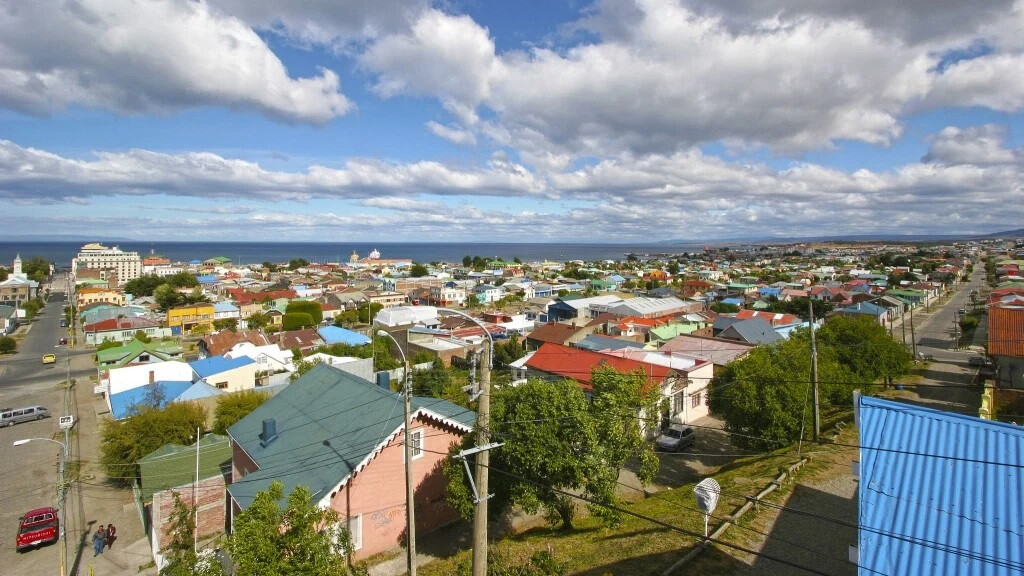
Punta Arenas, Chile - Taking advantage of what they perceive as a more economically liberal stance from the new Argentine government, officials and business leaders in southern Chile are actively exploring the re-establishment of trade ties with the Falkland Islands (Islas Malvinas). For the Magallanes region, particularly its capital Punta Arenas, this initiative represents a potential revitalization of economic activity that was significantly disrupted by the 1982 Falklands War.
Prior to the conflict, Punta Arenas served as a primary supplier of essential goods to the islands. Now, fueled by a pressing economic climate, local stakeholders are eager to resume this historical trade, envisioning the export of bottled gas, construction materials, lumber, and food products.
"There's an economic crisis, and we can't afford to miss an opportunity," has become a common sentiment among residents of Punta Arenas, according to local reports. The geographical proximity – a mere 898 kilometers between Punta Arenas and Port Stanley (Puerto Argentino) – presents a compelling logistical advantage. Proponents argue that Chilean goods could be offered at more competitive prices compared to current imports, which primarily originate from Uruguay.
Vania García, president of the Punta Arenas Free Trade Chamber of Users AG, emphasized the strategic importance of the Magallanes region. "Magallanes’ strategic location positions us as a key point for trade in Patagonia and the Antarctic continent. Establishing relations with the Malvinas would open up new opportunities for our operators and clients."
Sergio Huepe, manager of Gasco Magallanes, echoed this sentiment, highlighting the historical precedent. "It would be highly desirable. We would resume a tradition of more than 100 years. In addition to the income, it would allow local producers to trade wood, construction materials, food and vegetables with the islands." He specifically pointed to the potential for exporting bottled gas, noting that the islands currently import it from the United Kingdom, a significantly longer and potentially more expensive route. "Transporting it from Magallanes by ship would mean savings for them and the presence of a prestigious Chilean brand," Huepe stated.
Claudio Radonich, the mayor of Punta Arenas, was particularly vocal about the potential benefits for his city. "Milk, all the products, and fruit came from our city, and it was a very important injection of money into our economy. Therefore, for us, this is a return to what we've always done, which unfortunately has been suspended in recent years for political reasons."
Mayor Radonich is appealing to national political leaders to seriously consider the proposal. "Today, the damage is suffered by two small communities, the Malvina Islands and, above all, our city… Taking advantage of the new Argentine government, which has expressed its liberal stance on economic matters, I don't see any reason why two small communities should be prohibited from engaging economically." He has reportedly already engaged in discussions with government officials, including former Interior Minister Carolina Tohá and Defense Minister Maya Fernández.
While the government of President Gabriel Boric has historically supported Argentina's claim to the Falkland Islands within the United Nations, the economic realities facing the Magallanes region appear to be prompting a reconsideration of Chile's stance on trade. Senator Karim Bianchi of the Magallanes Region stated, "I don't think there's any problem with trade, and that's a benefit to our businesses. Argentina's problems are theirs and should not affect our trade."
Historically, the Falkland Islands maintained trade relations with both Punta Arenas and Montevideo, Uruguay, primarily for water supplies. However, in recent years, trade with Punta Arenas has dwindled due to bureaucratic hurdles, the high costs associated with navigating the Strait of Magellan and docking, and the cessation of direct maritime transport between the two ports. Trade with Uruguay has continued.
While the economic significance of this trade might be perceived as limited on a national scale for Chile, for the residents of the Magallanes region, the potential reactivation represents a valuable opportunity for economic growth and job creation. The initiative now hinges on the willingness of the Chilean national government to navigate the complex political sensitivities surrounding the Falkland Islands dispute and prioritize the economic needs of its southern region.
Key Points:
Historical Trade: Punta Arenas was a major supplier to the Falkland Islands before the 1982 war.
Economic Motivation: The Magallanes region faces economic challenges and sees trade as a vital opportunity.
Competitive Advantage: Chilean products could be more affordable due to shorter shipping distances compared to current suppliers.
Local Support: Businesses and local authorities in Punta Arenas strongly advocate for renewed trade.
Political Considerations: Chile's traditional support for Argentina's sovereignty claim presents a potential hurdle.
Argentine Factor: The perceived economic liberalism of the new Argentine government is seen as a window of opportunity.
Logistical Issues: Bureaucracy, navigation costs, and lack of direct transport have hindered trade in recent years.
This situation highlights the intricate interplay between economic necessities and long-standing geopolitical positions, particularly for communities located in strategically important but often economically vulnerable regions. The coming months will likely reveal whether the push from southern Chile can overcome the national government's established foreign policy regarding the Falkland Islands.
[Copyright (c) Global Economic Times. All Rights Reserved.]






























